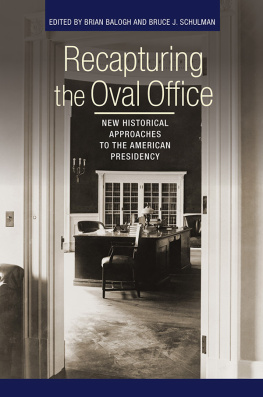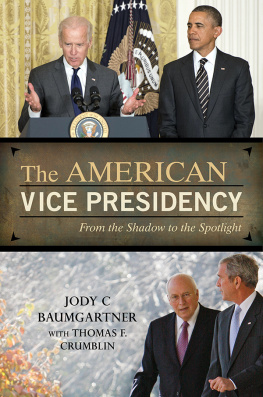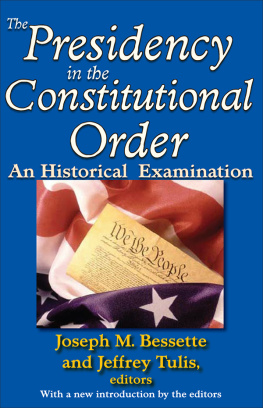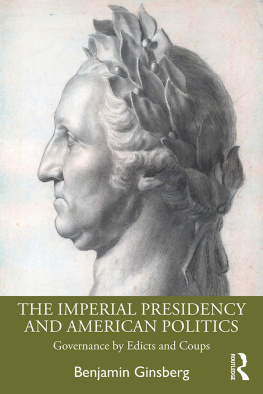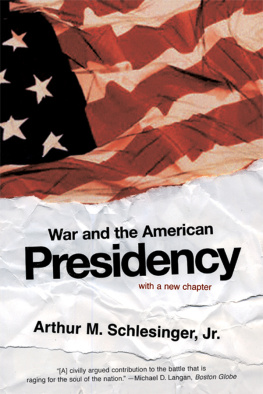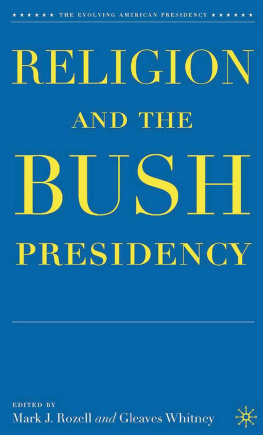Introduction
Confessions of a Presidential Assassin
Brian Balogh
As an undergraduate, I did not major in history.
As a former New York City welfare administrator scrambling to understand how and why Americans created durable bureaucratic regimes despite longstanding antagonism toward big government, I latched onto the few shards of political history that remained afloat in a sea of social and cultural history. One fragment was the organizational synthesis. Pioneered by historians who were also interested in social structuresSamuel P. Hays, Ellis Hawley, Robert Wiebe, Louis Galambosthis approach to political history credited large-scale shifts in social relations and the political economyindustrialization, urbanization, professionalizationwith causal agency.
Political history was a dying field then, but historical approaches to politics were thriving in the social sciences. American Political Development focused attention on the state as an independent actor, or at least one that was capable of adapting to broad social changes, at times even inducing some of those changes. The rise of APD offered important methods and analytical tools to historians interested in politics and public policy. More importantly, it reassured them that somebody was listening.
What all of these scholars shared was a skepticism about the kind of history that focused exclusively on the Oval Office. Even Steven Skowroneks Building a New American State a foundational text in the APD literature that dealt extensively with the Progressive Era administrations of Roosevelt, Taft, and Wilsonwas animated by the clash between an older polity built around parties and administrative institutions in the military command, fiscal sinews, and transportation networks of the twentieth-century state that were constructed in response to the pressures of a modernizing society.
It was not simply social and cultural historians who reduced presidents to bystanders in the march of history: It was first and foremost I had joined a team of presidential assassins intent on taking out the chief executives around whom much of the centurys political history had been framed.
We succeeded. Our triumph was most pronounced in the field of twentieth-century political history, arguably the very period in which presidents were most influential. Graduate students, buffeted by a powerful current of history crafted from the bottom up and trained by a generation of political historians who forged careers by dismantling the presidential synthesis, were discouraged from writing about the presidency. For twenty years I warned graduate students against writing dissertations centered on a presidential administration or the presidency. Although my advice was based on instinct and anecdotal evidence from the career paths of scholars who were either courageous or foolhardy enough to write about presidents, a recent review of hiring patterns confirms my suspicions. Of the roughly seventy first books (the product of dissertations) published by twentieth-century U.S. historians currently teaching at the top fifteen history departments over the past two decades, only one deals largely with the presidency. And that one, Fred Logevalls Choosing War: The Last Chance for Peace and Escalation of War in Vietnam , came in the field formerly known as diplomatic historyand even that one we actually counted as only half about the presidency. The presidency was an island unto itself, just as isolated from mainstream political history as it was from currents in social and cultural history. As such, diplomatic history never relinquished its interest in the executive branch and presidents themselves, as work by Robert Dallek, John Gaddis, and Mel Leffler, among others, demonstrates. As a result of this continuity, what is now a field of study called America and the World and the history of U.S. foreign relations, which has since reconnected with mainstream currents in the historical profession, can serve as a model for reintegrating the presidency into twentieth-century political history as well as U.S. history more broadly.
It is time to take study of the presidency off the endangered species list elsewhere in the historical profession, and it is essential that a new generation of political historians lead the way. That is because dissertations and the monographs they become are the basic building blocks of the profession. A generation of work lost at the beginning is a generation lost forever. Now These studies have illuminated the social and cultural environments in which presidents operate.
No doubt, initially much of this new energy came at the expense of political history and especially scholarship on the presidency. Recently, however, scholars working in social and cultural history and a range of some of the other new subdisciplines have brought politics back into their work.
The essays in this volume model the scholarly possibilities for bringing the presidency back in, situating the presidency in literatures that have displaced it over the past thirty years. Social historian Robert Self, in his penetrating analysis of presidents ability to harness and domesticate the energy that fuels social movements, illustrates the integral connection between the bottom-up politics of the street and the Oval Office. Economic historian Michael Bernsteins savvy explication of the ways in which presidents failed to consider the exceptional historical conditions that undergirded the influence of economists from 1945 through 1975 demonstrates the historically contingent power of expertise. Political historian Gareth Daviess essay on the evolving role that presidents play in responding to disasters captures nicely the crucial role that shifting responsibilities between the states and the national government, on the one hand, and public expectations, on the other, play in dictating the chief executives response to hurricanes, floods, and other acts of nature. Historian of religion Darren Dochuks incisive narrative about oil patch spirituality that seeped into presidential politics during the New Deal and continues to fuel debate today connects the worldviews of presidents to a broad range of public policies. In these and the other essays in this volume, this book illustrates what is possible when materials from the Oval Office are deployed by scholars who are not specialists on the presidency.
While internal historiographic opportunities explain some of this resurgence, exogenous factors explain far more. The electrifying victory of Americas first African American president is certainly one crucial catalyst. Making up for the decades-long neglect of the history of racial relations had pointed historians toward the grass roots and the cultural interstices of history. Obamas election and, perhaps more remarkably, his reelection offer an opportunity to write about racial politics through the highest office in the land. With (at this writing) Hillary Clinton the odds-on candidate to win the Democratic nomination in 2016, the same can be said for gender. Two other factors have redirected attention of historians of all stripes toward the Oval Office. The first of these is the recent fascination with globalization (in spite of its centuries-old role in American life). As the focal point for Americas interactions with the rest of the world, the Oval Office looms far larger in the lives of Americans who are attentive to such global influences. Second, decades of growing income and wealth inequality have raised fundamental questions about the kind of society that the United Sates is becoming. Questions like this, just as the battles over the shift from an agrarian to industrial economy at the turn of the twentieth century and Americas permanent military deployment abroad during and after World War II indicate broad-gauged debate that is often best interpreted through an examination of Americas highest office.

